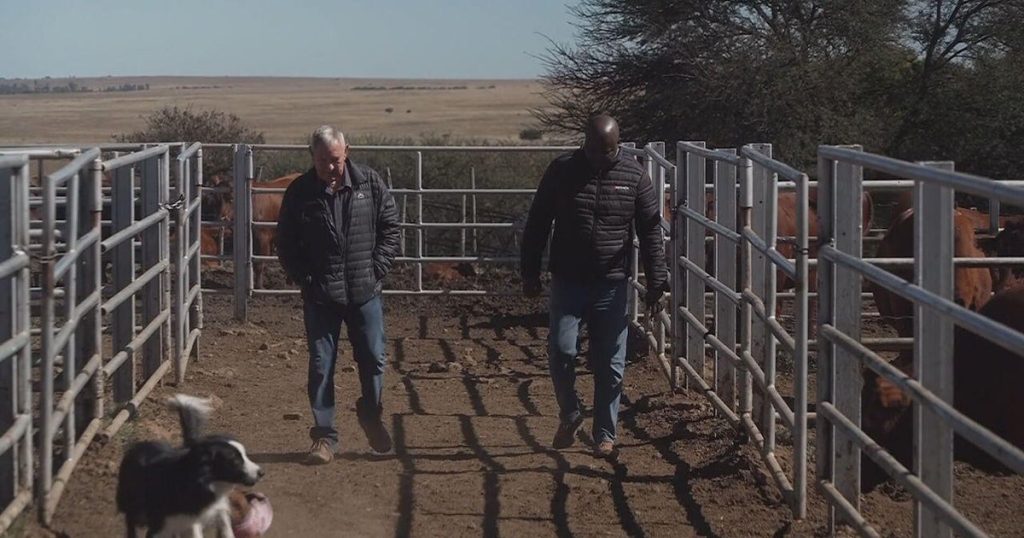Recent developments in U.S. immigration policy have spotlighted a controversial refugee program targeting a specific group within South Africa—Afrikaners. This initiative, embraced by certain U.S. officials, signals a renewed focus on the White ethnic minority that once dominated South Africa during its apartheid era. As Afrikaners seek asylum in the U.S., discussions surrounding their plight have sparked debates over racial dynamics and the realities of farming violence in South Africa.
| Article Subheadings |
|---|
| 1) The Afrikaner Refugee Initiative |
| 2) Claims of Violence and Discrimination |
| 3) Responses from South Africa’s Leadership |
| 4) Economic Realities for Afrikaners |
| 5) The Path Forward: Collaboration and Integration |
The Afrikaner Refugee Initiative
The Afrikaner refugee initiative marks a significant turn in U.S. immigration policy, particularly towards a demographic that dominated South Africa during its apartheid regime. Introduced under the current administration, this program offers expedited refugee status to Afrikaners fleeing perceived violence and discrimination in their home country.
Since its inception, officials have reported a noticeable rise in Afrikaners applying for asylum, reportedly citing fears of a ‘genocide’ targeting the White minority. Such claims have garnered mixed reactions from various stakeholders, setting the stage for a larger dialogue on race, rights, and valid refugee claims in the modern era.
Claims of Violence and Discrimination
Many Afrikaners argue that their lives are in jeopardy due to increasing violence and systemic discrimination against them in South Africa. They assert that the government favors anti-White narratives, leading to hostile sentiments against this minority group. Dolf Grobler, a professional hunter and activist, provided a poignant testimony stating, “I’m worried that the genocide, which is currently mainly focused on White farmers, is going to spread.”
Such declarations incite controversy, implications that are vigorously dismissed by experts and community leaders in South Africa. Critics argue that these claims are exaggerated and often lack evidence. The situation serves as a rallying point for supporters and critics, each with their own stakes in the political landscape surrounding race relations in post-apartheid South Africa.
Responses from South Africa’s Leadership
High-profile interactions between U.S. and South African leaders have highlighted the polarized perceptions of race-related violence. Most recently, the South African President engaged with U.S. officials, emphasizing that concerns about violence are not exclusive to any particular race. Instead, President Cyril Ramaphosa pointed out that crime affects all demographics, stating, “The majority of them are Black people.”
The remarks showcase the complexities of addressing crime and violence in South Africa, where socio-economic factors often overshadow racial narratives. In discussions with U.S officials, Ramaphosa emphasized a more holistic approach to understanding these violent dynamics, ultimately seeking strategies that promote inclusivity rather than division.
Economic Realities for Afrikaners
Despite ongoing discussions surrounding security concerns, economic realities reveal that Afrikaners remain a powerful demographic in South Africa. They occupy a dominant position in various sectors, particularly agriculture. Reports suggest that while Whites represent only 7% of the South African populace, they continue to own over half of the farmland.
Analyzing the broader economic landscape, criticism emerges regarding the narrative of impending genocide. Piet Croucamp, an academic from North-West University, asserts that “Whites are economically the strongest group in South Africa,” thus debunking the claims of systematic elimination. Such insights reveal that while crime may threaten individual lives, a broader structural analysis captures the complexities of wealth distribution and power dynamics across racial lines in the country.
The Path Forward: Collaboration and Integration
As South Africa grapples with its history, one emerging narrative is the push for collaboration between various racial groups. Recently, initiatives have been launched focusing on training young Black farmers, demonstrating a growing recognition of the need for mutual support in the agricultural sector.
Discourses centered on sharing resources underline the necessity of an integrated approach to agriculture that transcends racial boundaries. Afrikaner farmer Nick Serfontein, who has contributed to the training of over 700 young Black farmers, encapsulated this sentiment by stating that future farming in South Africa must prioritize collective effort. Such endeavors aim to reshape perspectives on race and cultivate harmonious relationships, affirming a future where both White and Black farmers can thrive together.
| No. | Key Points |
|---|---|
| 1 | The U.S. has initiated a refugee program specific to Afrikaners from South Africa. |
| 2 | Afrikaners claim the risk of violence and discrimination has led them to seek asylum. |
| 3 | South African officials contest the narrative of a White genocide, highlighting broader crime trends. |
| 4 | Economic conditions indicate Afrikaners maintain significant wealth and land ownership. |
| 5 | Collaborative efforts between racial groups are emerging in the agricultural sector. |
Summary
The discourse surrounding the Afrikaner asylum seekers highlights deep-seated complexities within South Africa’s racial narratives and economic realities. As the U.S. implements its refugee program, it serves not just as a sanctuary for those fleeing reported violence, but as a focal point for long-standing debates over race, governance, and socio-economic interactions in a historically polarized society. The future will likely hinge on these ongoing discussions, where collaborative efforts across racial lines become increasingly pivotal.
Frequently Asked Questions
Question: What is the Afrikaner refugee initiative?
The Afrikaner refugee initiative is a program introduced by the U.S. administration that provides expedited refugee status for Afrikaners fleeing violence and discrimination in South Africa.
Question: Why do Afrikaners feel threatened in South Africa?
Many Afrikaners claim they are at risk of violence and discrimination, citing increasing hostility towards their community and a belief that a ‘genocide’ against Whites is possible.
Question: How do South African officials respond to the claims of a White genocide?
South African officials, including President Cyril Ramaphosa, argue that crime and violence affect all racial groups and not only focus on Afrikaners. They dispute the narrative of a targeted genocide against Whites, citing broader socio-economic issues.


